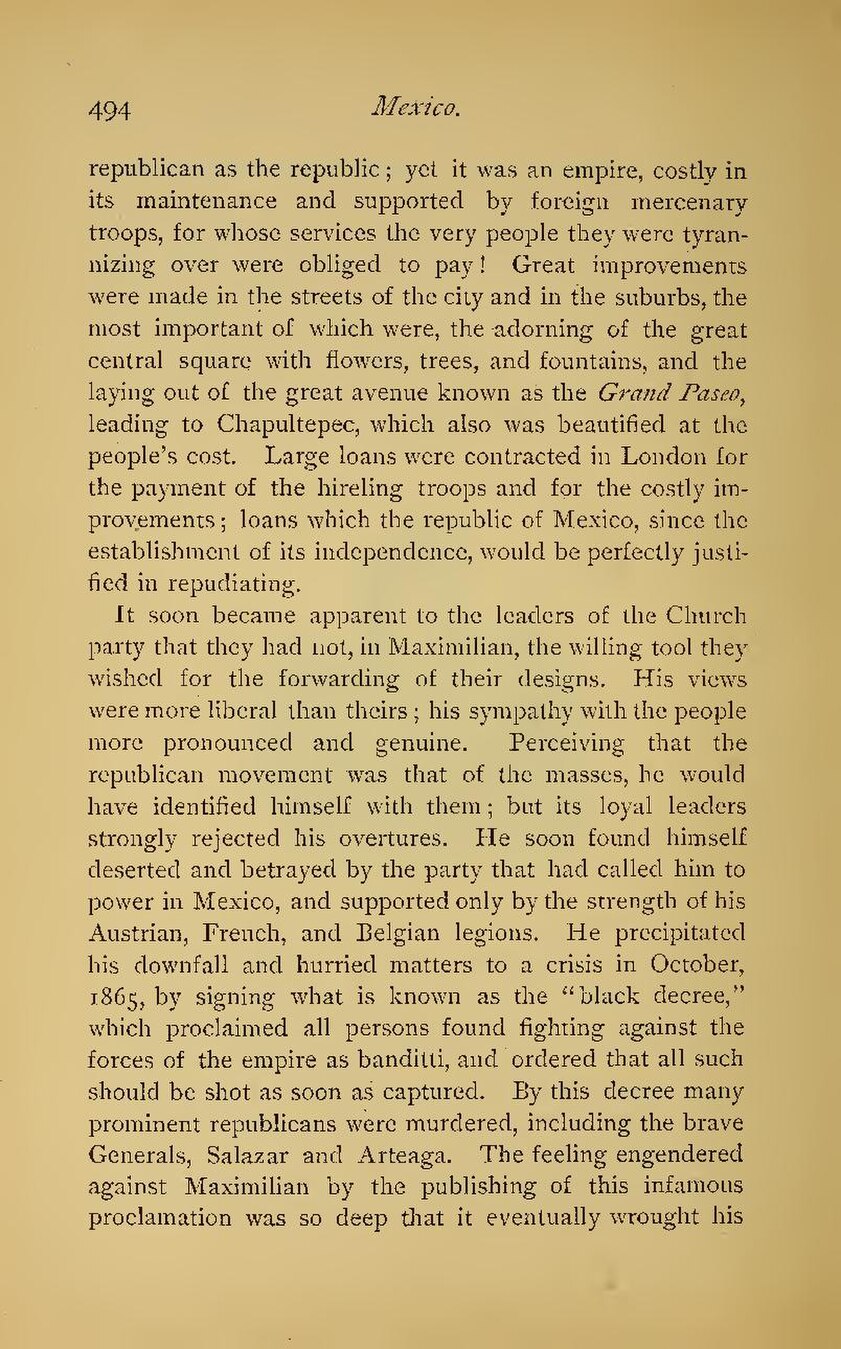republican as the republic; yet it was an empire, costly in its maintenance and supported by foreign mercenary troops, for whose services the very people they were tyrannizing over were obliged to pay! Great improvements were made in the streets of the city and in the suburbs, the most important of which were, the adorning of the great central square with flowers, trees, and fountains, and the laying out of the great avenue known as the Grand Paseo, leading to Chapultepec, which also was beautified at the people's cost. Large loans were contracted in London for the payment of the hireling troops and for the costly improvements; loans which the republic of Mexico, since the establishment of its independence, would be perfectly justified in repudiating.
It soon became apparent to the leaders of the Church party that they had not, in Maximilian, the willing tool they wished for the forwarding of their designs. His views were more liberal than theirs; his sympathy with the people more pronounced and genuine. Perceiving that the republican movement was that of the masses, he would have identified himself with them; but its loyal leaders strongly rejected his overtures. He soon found himself deserted and betrayed by the party that had called him to power in Mexico, and supported only by the strength of his Austrian, French, and Belgian legions. He precipitated his downfall and hurried matters to a crisis in October, 1865, by signing what is known as the "black decree," which proclaimed all persons found fighting against the forces of the empire as banditti, and ordered that all such should be shot as soon as captured. By this decree many prominent republicans were murdered, including the brave Generals, Salazar and Arteaga. The feeling engendered against Maximilian by the publishing of this infamous proclamation was so deep that it eventually wrought his
